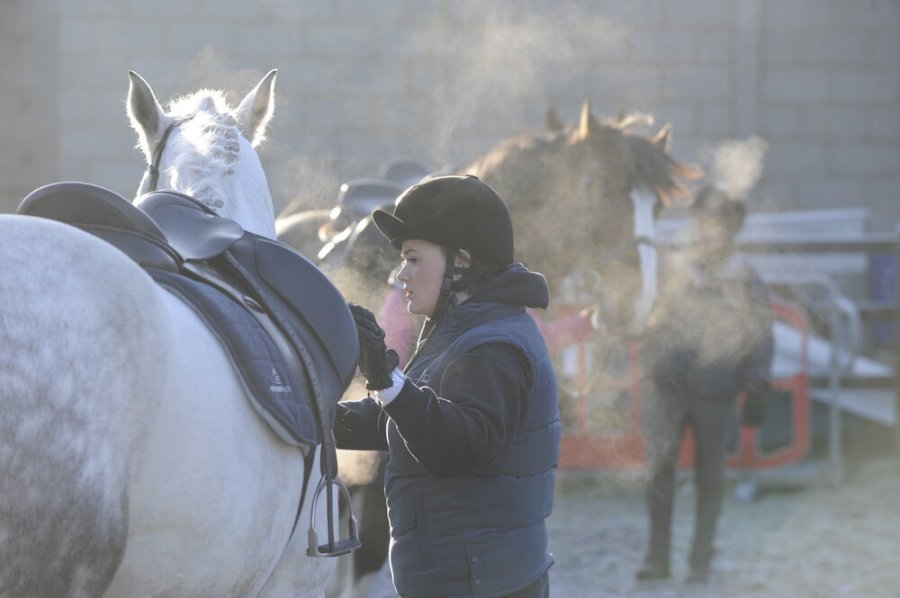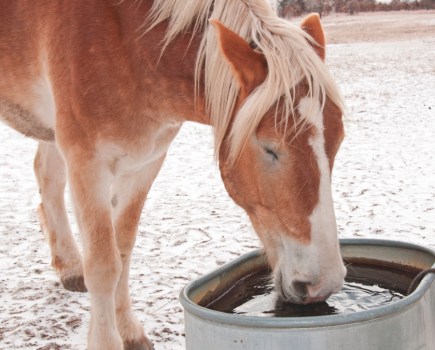Winter brings with it a host of difficulties that can leave even the most hardcore owner struggling. But it needn’t be such a challenge.
Over-fresh horses
Try to turn your horse out as much as possible, even when it’s been snowing. Many horses love a roll in fresh snow! While humans may want their horse to stay tucked up indoors, horses disagree and will almost always prefer to be out. It means they’ll be able to burn off some of their pent-up energy too, making them safer to handle and ride.
There will be occasions, however, when you can’t turn out safely, in which case find other ways to let your horse stretch his legs — even if it’s just 15 minutes in a school or round pen.
Walk him in-hand if it’s safe to do so.
Preventing pulled muscles
When it’s cold, it takes longer for muscles and ligaments to warm up. If a muscle is worked too hard before it is fully warmed, this can cause serious damage. For this reason, both you and your horse should spend extra time warming up before performing any strenuous exercises.
Spend an extra 5-10 minutes warming up your horse in walk before doing the same in trot and canter. Putting him on a walker or taking him for a stroll down the road before starting to work in the arena will help too.
You could also try covering his loins with an exercise blanket for the first part of your session and, if possible, stand him under a solarium before tacking up.
Mud fever
Mud fever is the bane of many horse owners’ lives. Key preventative measures include not allowing your horse to stand for long periods in deep, wet mud and never washing muddy legs.
Try adding a barrier cream, such as Vaseline or baby oil, before your horse goes out – this will help to prevent the mud from sticking. You could also try turnout boots and wraps, but they must fit well otherwise the mud will seep in underneath and rub. When your horse returns from the field with muddy legs, allow the mud to dry before brushing it off.
If your horse does develop mud fever, speak to your vet about the most effective treatment. Some horses may require antibiotics to help clear up the infection.
Don’t miss the latest issue of Your Horse Magazine, jam-packed with training and veterinary advice, horse-care tips and the latest equestrian products available on shop shelves, on sale now.









